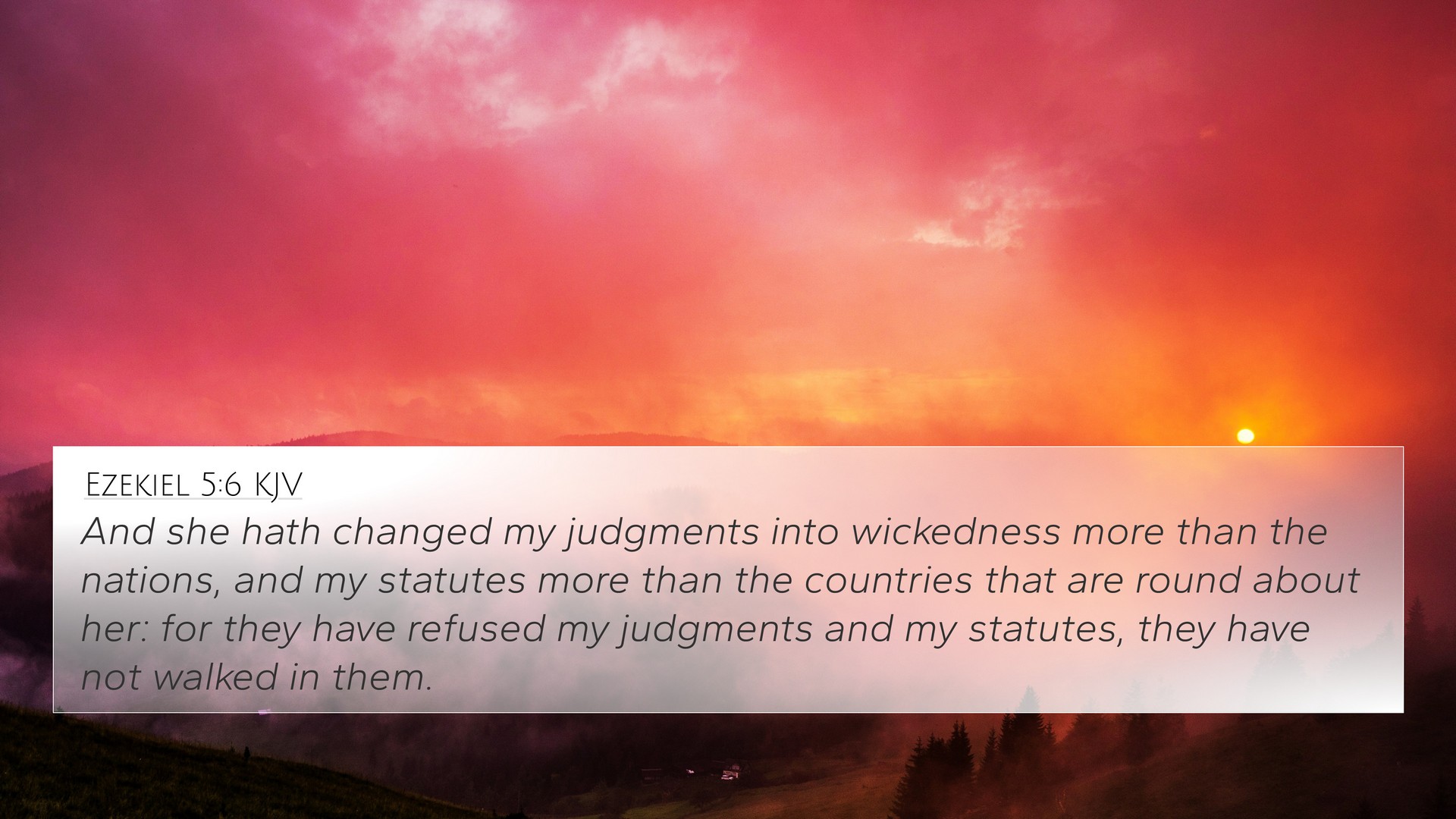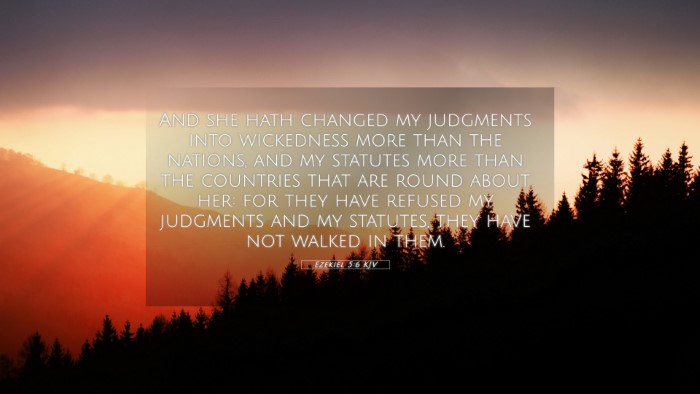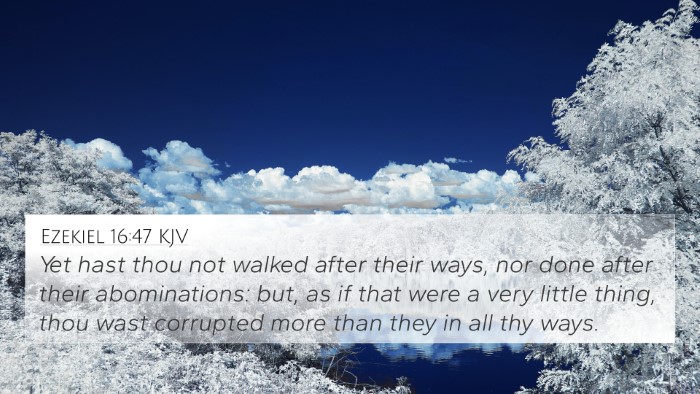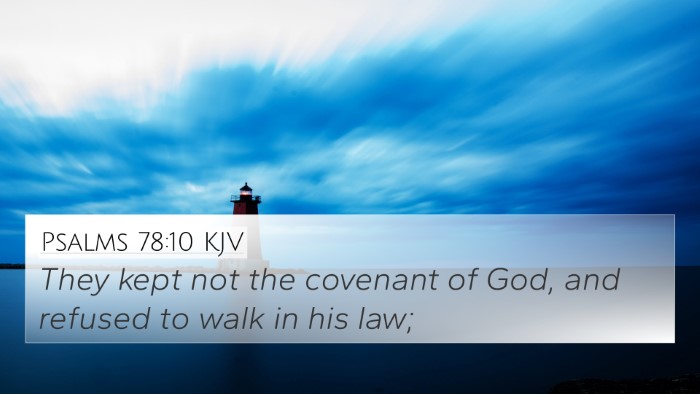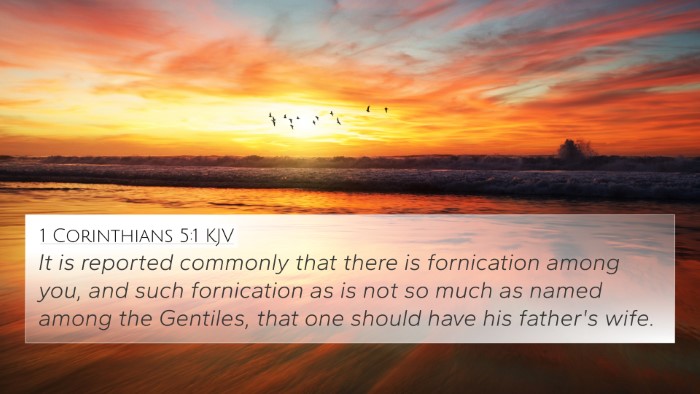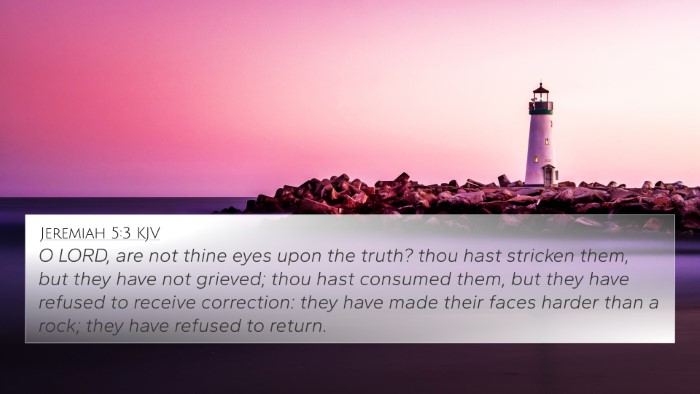Ezekiel 5:6 Overview
Ezekiel 5:6 states: "And she hath changed my judgments into wickedness more than the nations, and my statutes more than the countries that are round about her: for they have refused my judgments and my statutes, they have not walked in them." This verse highlights the themes of disobedience and judgment against the backdrop of God's covenant relationship with Israel.
Meaning of Ezekiel 5:6
This verse encapsulates three primary ideas concerning Israel's unfaithfulness:
- Violation of Divine Ordinances: Israel is accused of altering God's laws for their own convenience, leading to greater sin than the surrounding nations.
- Refusal of God's Guidance: The refusal to follow divine statutes reveals a deeper spiritual rebellion and disregard for divine wisdom.
- Comparison with Other Nations: By juxtaposing Israel with surrounding nations, the verse emphasizes the severity of Israel's sin as they were chosen to be God's people.
Commentary Insights
Matthew Henry
Matthew Henry emphasizes the shameful act of Israel changing God's judgments into wickedness, indicating that their moral decline was more egregious than the heathen nations. He notes that Israel had been given special revelations and laws, yet they turned away from them.
Albert Barnes
Albert Barnes points out that God's standards, which were meant to guide the Israelites, were not only ignored but replaced with a system founded on unrighteousness. His commentary stresses that the repercussions would be severe due to this betrayal of the moral and covenantal relationship established by God.
Adam Clarke
Adam Clarke examines the implications of the verse in light of the covenant made with Israel. He asserts that their actions were not just disobedient but indicative of a deeper corruption and moral depravity, leading to inevitable judgment.
Bible Cross-References
This verse can be cross-referenced with several other scriptures that highlight themes of judgment, disobedience, and the consequences of straying from God’s path:
- Isaiah 1:2-4: A call to attention regarding Israel's rebellion.
- Jeremiah 2:13: "For my people have committed two evils; they have forsaken me, the fountain of living waters, and hewed them out cisterns, broken cisterns, that can hold no water."
- Hosea 4:6: "My people are destroyed for lack of knowledge; because thou hast rejected knowledge, I will also reject thee..."
- Amos 3:2: "You only have I known of all the families of the earth: therefore I will punish you for all your iniquities."
- Deuteronomy 32:5: "They have corrupted themselves, their spot is not the spot of his children: they are a perverse and crooked generation."
- Romans 10:3: "For they being ignorant of God's righteousness, and going about to establish their own righteousness, have not submitted themselves unto the righteousness of God."
- Revelation 3:16: "So then because thou art lukewarm, and neither cold nor hot, I will spew thee out of my mouth."
Thematic Connections
This verse can connect to broader theological themes such as:
- Divine Judgment: Explored in various scriptures, linking to the consequences of turning away from God.
- Covenantal Unfaithfulness: Illustrated through narratives across both the Old and New Testaments, demonstrating how failing to adhere to God's laws brings about significant repercussions.
- Spiritual Blindness: Seen in passages that discuss refusal to see truth, leading to disobedience.
- The Consequences of Sin: Themes present throughout both the prophetic texts and the teachings of Jesus about the cost of sin.
Conclusion
The warning issued in Ezekiel 5:6 carries profound implications for understanding human disobedience in the light of divine holiness. As we examine this verse with teachings from Matthew Henry, Albert Barnes, and Adam Clarke, we are reminded of the seriousness of turning away from God's commandments. The inter-biblical dialogue concerning Israel's failures serves as a cautionary tale for current believers.
